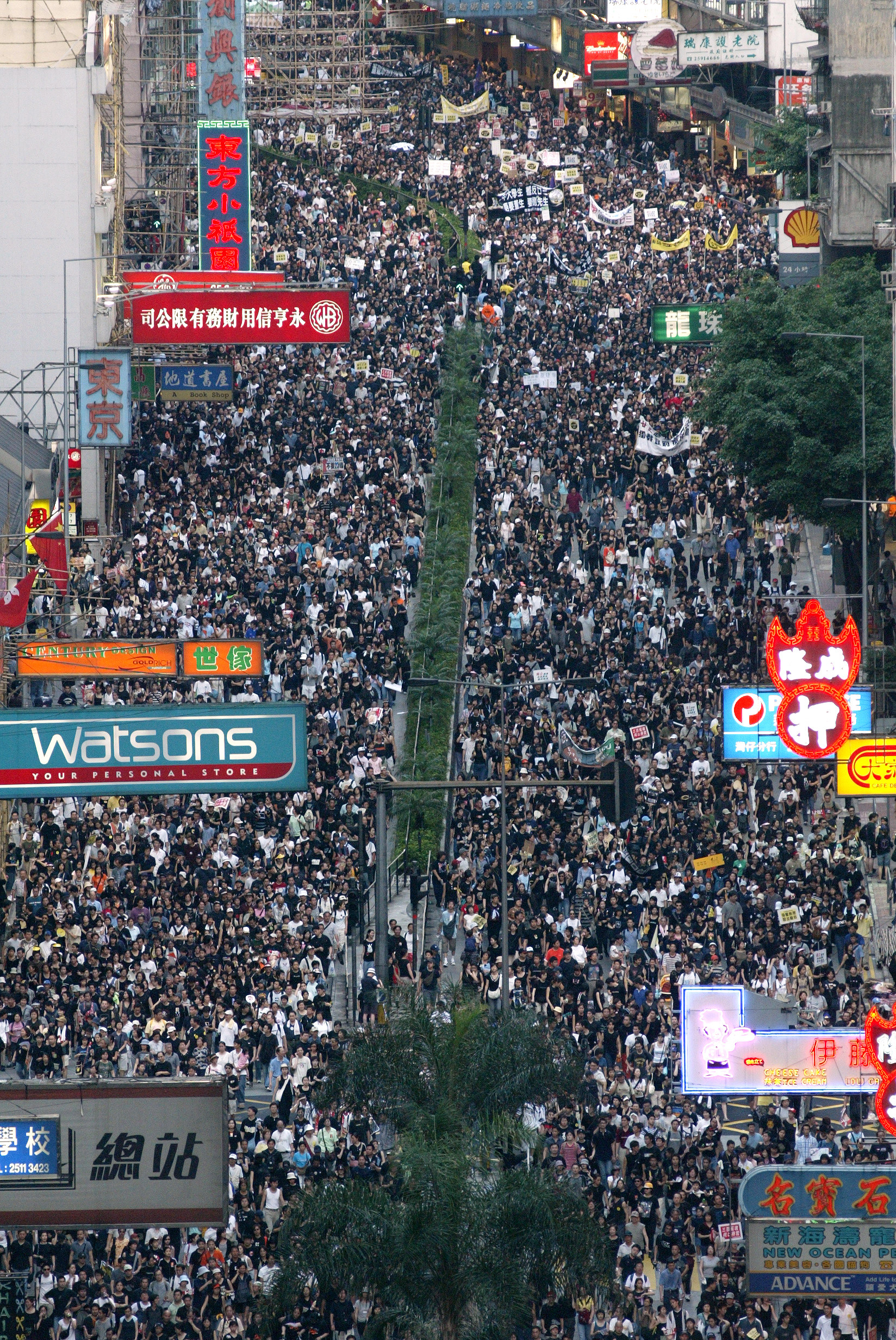Penalties for each of the proposed offences were suggested at the time, but were omitted in the new consultation paper, a comparison by the Post found.

The government said penalties would appear in the bill to be submitted to the legislature.
The city’s first attempt to pass a national security bill failed when the Liberal Party withdrew its support in the legislature after more than half a million people took to the streets in a protest over its provisions.
Albert Chen Hung-yee, a University of Hong Kong law professor, said he had noticed the new proposal was “more comprehensive and includes some provisions that are stricter”.
But Chen, a former member of the country’s Basic Law Committee, said the change was understandable.
“Unlike in 2003, Hong Kong has indeed seen activities that endanger national security, and foreign forces have posed an increased threat to China’s national security,” he added.
One major addition to the new bill was the offence of insurrection, designed to punish those who committed violent acts in Hong Kong with intent to endanger the country’s sovereignty, unity and territorial integrity or public safety in the city.
The government made clear in the consultation paper that the offence was proposed because of “black-clad violence” in 2019, and dealing with protesters through a charge of rioting did not reflect the seriousness of the threat to national security in terms of criminality or the available penalties.
Like the other four groups of offences mentioned in the consultation paper, there was no penalty proposed for an insurrection conviction.
The paper highlighted, however, that “similar” treachery offences in Australia, Canada and Singapore carried a maximum penalty of life imprisonment.
‘Rebuttal team’ to fight attacks on Hong Kong’s home-grown national security law
‘Rebuttal team’ to fight attacks on Hong Kong’s home-grown national security law
A conviction for rioting is punishable by up to 10 years behind bars on indictment.
The new legislation also proposes to retain the colonial-era crime of “treasonable offence,” in addition to treason.
The authorities said it was “a must to effectively prevent others from following such acts, which may pose serious risks to national security”.
The administration under the city’s first chief executive Tung Chee-hwa in 2002 suggested “treasonable offence” should be removed from the statute books.
The 2002 consultation paper said the “treasonable offence” legislation was based on“forming an intention” and “manifesting that intention by an overt act” and could therefore be “rather wide”.

“In view of the seriousness of the offences in question, we propose to provide expressly for statutory offences for inchoate and accomplice acts … treasonable offences, that is, section 3 of the Crimes Ordinance should no longer be retained,” it suggested.
The old bill also proposed a narrower definition of the seditious publication offence, which focused on punishing only those who were involved with written material that incited “the substantive treason, secession and subversion offences”.
The 2002 paper mentioned the International Covenant on Civil and Political Rights and said “offences targeting publications are a direct restriction on the freedom of expression and should therefore be narrowly defined in order to comply with the necessity and proportionality criteria as required under the ICCPR”.
The seditious publication offence is still in force and has been used against editors of the now-closed Stand News in the city’s first sedition case involving the media.
The only mention in the latest consultation document was a recommendation to raise the penalties for the offence of “possession of seditious publication”, which at present carries a maximum penalty of one year in prison for a first conviction.
Hong Kong to ‘begin consultation on home-grown national security law on Tuesday’
Hong Kong to ‘begin consultation on home-grown national security law on Tuesday’
Authorities also called for tougher punishments for the “seditious intention” offence taking into account “the seriousness of offences endangering national security”, but did not specify a target.
The latest proposal also incorporated updates that would drop colonial-era terms, such as removing the terms “killing or wounding Her Majesty” as well as the removal of references to the United Kingdom and the governor in the treason offence.
Grenville Cross, a former director of public prosecutions, said he expected the “maximum penalties will ultimately be pitched at a high level, given the gravity of the crimes” and the present penalty was “derisory” and had no deterrent effect.
Deputy justice minister Horace Cheung Kwok-kwan added the public should not “worry and overthink” about the lack of penalties because they would have time to voice their views, even after the end of the one-month consultation period on February 28.
“The government will then submit the bill to the Legislative Council and a draft law will become available,” Cheung said. “Our residents will have enough time and opportunities to express their views in this process.”
The public was given three months to comment on the consultation paper before the 2003 legislation.
Thomas Kellogg, the executive director of the Centre for Asian Law at Georgetown University in the United States, said a three-month period “would make more sense” than one month.
“This is [a] very significant and wide-ranging legislation, with potentially far- reaching implications for human rights and the rule of law in Hong Kong,” he added.
“The government also should have provided a draft bill that includes proposed legislative language, so that the public could get a better sense of the specifics of some of the government’s proposals.”
Additional reporting by Lilian Cheng

